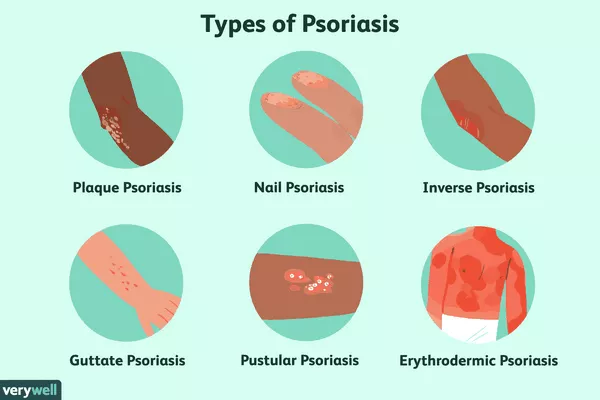Psoriasis is a chronic autoimmune condition characterized by inflamed, scaly patches of skin. With approximately 125 million individuals worldwide affected by this condition, its management remains a topic of ongoing research and debate. Among the various factors believed to influence psoriasis severity and flare-ups, diet often comes under scrutiny. Fish, in particular, has sparked curiosity due to its omega-3 fatty acid content and potential anti-inflammatory properties. However, conflicting information and misconceptions have led to confusion regarding whether fish consumption is beneficial or detrimental for individuals with psoriasis.
Understanding Psoriasis: A Complex Interplay of Genetics and Environmental Factors
Before delving into the relationship between fish consumption and psoriasis, it is crucial to grasp the underlying mechanisms of this multifaceted condition. Psoriasis results from an interplay of genetic predisposition, immune system dysregulation, and environmental triggers. Immune cells mistakenly attack healthy skin cells, leading to accelerated skin cell turnover and the characteristic red, scaly patches associated with psoriasis.
While genetic predisposition plays a significant role, environmental factors, including diet, can modulate the severity and frequency of psoriasis flare-ups. Dietary choices influence inflammation levels and immune system function, prompting researchers to explore the potential impact of specific foods on psoriasis symptoms.
The Omega-3 Fatty Acid Connection: Exploring Fish as a Potential Remedy
Fish, particularly fatty fish like salmon, mackerel, and sardines, are renowned for their high omega-3 fatty acid content. Omega-3 fatty acids, including eicosapentaenoic acid (EPA) and docosahexaenoic acid (DHA), are polyunsaturated fats celebrated for their anti-inflammatory properties. These fats are known to counteract the inflammatory pathways implicated in various chronic conditions, including cardiovascular disease, rheumatoid arthritis, and possibly psoriasis.
Given the inflammatory nature of psoriasis, the potential anti-inflammatory effects of omega-3 fatty acids have piqued the interest of researchers and patients alike. Some studies suggest that incorporating fish into the diet or taking omega-3 supplements may help alleviate psoriasis symptoms by reducing inflammation and slowing skin cell turnover.
Navigating Conflicting Evidence: The Debate Surrounding Fish Consumption and Psoriasis
Despite the promising potential of fish and omega-3 fatty acids in mitigating inflammation, the evidence regarding their efficacy in managing psoriasis is not unequivocal. While some studies have reported beneficial effects, others have failed to establish a significant correlation between fish consumption and psoriasis severity.
One notable study published in the Journal of the American Academy of Dermatology found no association between fish intake and psoriasis risk or severity among women in the Nurses’ Health Study II cohort. Similarly, a meta-analysis examining the efficacy of omega-3 fatty acid supplementation in psoriasis treatment yielded inconclusive results, with some trials showing modest improvements while others showed no significant benefit.
The conflicting findings underscore the complexity of psoriasis and the need for further research to elucidate the nuanced relationship between fish consumption, omega-3 fatty acids, and psoriasis management. Factors such as individual genetic predisposition, dietary patterns, and the presence of comorbidities may influence the response to dietary interventions in psoriasis patients.
Considerations for Incorporating Fish into the Psoriasis Diet
While the scientific evidence may not definitively support or refute the role of fish in psoriasis management, there are several considerations for individuals with psoriasis who are contemplating incorporating fish into their diet:
1. Variety Matters: Opt for a diverse range of fish species to maximize the intake of different nutrients and minimize potential exposure to contaminants such as mercury. Incorporate both fatty fish and lean varieties into your diet to balance omega-3 fatty acids with other essential nutrients.
2. Mindful Preparation: Avoid frying fish in unhealthy oils or pairing it with high-fat, high-calorie accompaniments that may exacerbate inflammation. Opt for healthier cooking methods such as grilling, baking, or steaming to preserve the nutritional integrity of fish dishes.
3. Individualized Approach: Recognize that dietary interventions may yield variable outcomes among individuals with psoriasis. Monitor your body’s response to changes in diet and consult with a healthcare provider or registered dietitian to tailor dietary recommendations to your specific needs and preferences.
4. Supplementation Consideration: If fish consumption is impractical or undesirable, consider omega-3 fatty acid supplementation as an alternative. However, consult with a healthcare professional to ensure appropriate dosage and monitor for any potential side effects or interactions with existing medications.
Conclusion
In conclusion, the question of whether fish is bad for psoriasis is not easily answered with a simple yes or no. While fish, particularly fatty varieties rich in omega-3 fatty acids, holds promise as a potential dietary intervention for mitigating inflammation in psoriasis, the scientific evidence remains inconclusive. Individual variability, methodological limitations in studies, and the complex nature of psoriasis contribute to the conflicting findings surrounding fish consumption and psoriasis management.
Rather than viewing fish as a panacea or a potential trigger for psoriasis flare-ups, individuals with psoriasis should adopt a holistic approach to dietary management. Emphasizing a balanced diet rich in fruits, vegetables, whole grains, and lean proteins while minimizing processed foods and inflammatory triggers remains paramount. Incorporating fish into the diet, alongside other evidence-based lifestyle modifications, may offer incremental benefits for some individuals with psoriasis.
As research continues to unravel the intricate relationship between diet and psoriasis, patients and healthcare providers alike must stay informed and approach dietary recommendations with caution. By fostering open dialogue, embracing evidence-based practices, and tailoring interventions to individual needs, we can empower individuals with psoriasis to make informed choices that promote overall health and well-being.
























